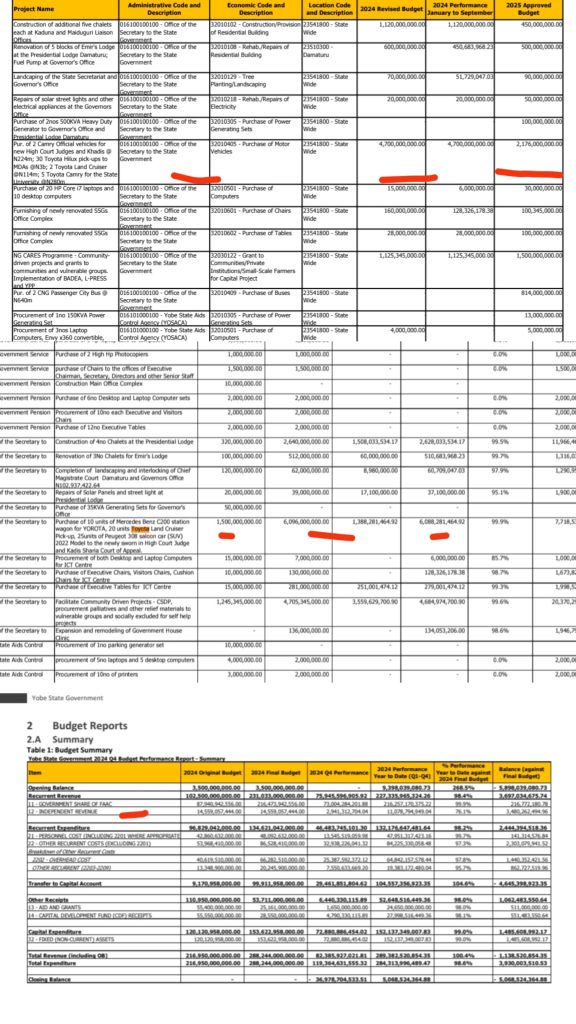Jamflash News Report —
A review of Yobe State’s 2025 budget has sparked public debate after it was revealed that the government has allocated ₦2.1 billion for the purchase of new vehicles, despite already spending a staggering ₦6.088 billion on cars between January and December 2024.
2024 Vehicle Purchases
According to official records, in 2024 the state procured:
-
10 Mercedes-Benz station wagons for YOROTA,
-
20 Toyota Land Cruiser pick-ups, and
-
25 Peugeot 308 saloon cars (2022 SUV models) for newly sworn-in High Court judges and Kadis of the Sharia Court of Appeal.
The total cost for these acquisitions stood at ₦6.088 billion, which accounted for 55% of the state’s internally generated revenue (₦11 billion) in 2024.
Health Challenges Amid Lavish Spending
While billions were being spent on cars, Yobe was facing serious public health issues. By September 25, 2024, the state recorded 132 confirmed cholera cases and nine deaths across Gubja, Fune, Machina, Nangere, and Nguru Local Government Areas.
The Commissioner for Health and Human Services, Dr. Mohammed Gana, confirmed that 112 patients were treated and discharged, but sadly, nine people (6.8%) lost their lives due to delays in accessing healthcare services.
2025 Budget Vehicle Allocation
Despite the heavy expenditure last year, the 2025 budget has once again earmarked ₦2.1 billion for new automobiles, which include:
-
Two Camry official cars
-
30 Toyota Hilux pick-ups
-
Two Toyota Land Cruisers
-
Five additional Toyota Camrys
Poverty and Development Concerns
This spending comes at a time when Yobe remains one of Nigeria’s poorest states. Data from the National Bureau of Statistics (NBS) shows that:
-
48% of school-aged children in Yobe do not have access to education.
-
73% of households are deprived of basic social amenities.
-
27% of residents lack access to clean drinking water.
Overall, more than 1.3 million people in Yobe State live in poverty.
Conclusion
The fresh allocation of ₦2.1 billion for vehicles in 2025 has raised eyebrows among citizens and observers, given the state’s harsh economic reality and poor social development indicators. Many are questioning whether such luxury spending should be prioritized over critical investments in healthcare, education, and infrastructure.

